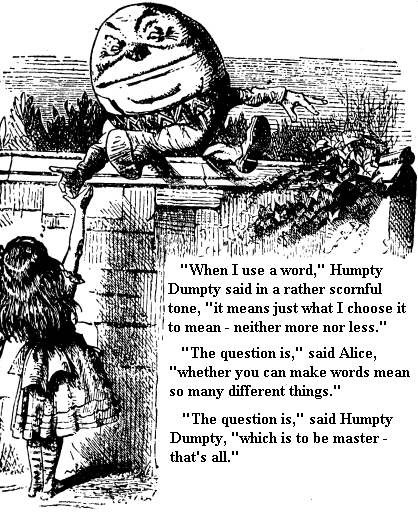This is a question which courts have pondered. Why does it matter? With immunity, you can file a Rule 12(c) Motion for Judgment on the Pleading - saying "Judge, there just aint nothing here." With protection from liability, the litigation proceeds a bit further and you file a Rule 12(b)(6) Motion for Failure to State a Claim - saying "Judge, there just aint nothing here." See the difference? One lets the litigation out of the gates; the other does not. Both have the same result (potentially).
We visit this question in GENERAL STEEL DOMESTIC SALES, LLC v. Chumley, Court of Appeals, 10th Circuit 2016, where two companies were in the business of prefrabricating steel buildings.
PLAINTIFF employed Mr. DEFENDANT until 2005, when he left to start his own competing steel building company. The parties have been engaged in numerous legal disputes ever since.
Plaintiff sued. Defendant moved to dismiss under Sec. 230(c), arguing that "the CDA bars not just liability, but also suit."The underlying dispute involves DEFENDANT Steel's negative online advertising campaign against PLAINTIFF Steel. When internet users searched for "PLAINTIFF Steel," negative advertisements from DEFENDANT Steel would appear on the results page. Clicking on the advertisements would direct users to DEFENDANT Steel's web page entitled, "Industry Related Legal Matters". The IRLM Page contained thirty-seven posts, twenty of which form the basis of General Steel's complaint. To varying degrees, the twenty posts summarize, quote, and reference lawsuits involving PLAINTIFF Steel. Each lawsuit is listed with a title, a brief description of the case, and a link, by which the reader could access the accompanying court document. The majority of the case descriptions contained quotes that were selectively copied and pasted from the underlying legal documents.
The district court found that DEFENDANT Steel was entitled to immunity for three posts because those posts simply contained links to content created by third parties. The court refused, however, to extend CDA immunity to the remaining seventeen posts and the internet search ads. The court found that the "defendants created and developed the content of those ads," and were therefore not entitled to immunity. With respect to the remaining seventeen posts, the court found that the defendants developed the content by selectively quoting and summarizing court documents in a deceiving way.
So, right away, there's a problem. Sec. 230(c) protects online services from liability for third party content. But not from liability for their own content. And not so much from liability when the online service has a hand in the creation of that third party content. As we have seen in cases like Fair Housing Council of San Fernando Valley v. Roommates.com, LLC, 521 F.3d 1157, 1164-65 (9th Cir. 2008) (en banc) (holding website operator was not entitled to § 230(c)(1) protection where it made users' answer discriminatory questions a condition of doing business, thereby participating in the "development" of the users' submissions); Fed. Trade Comm'n v. Accusearch Inc., 570 F.3d 1187, 1198 (10th Cir. 2009). ("The Tenth Circuit held that a website could not claim immunity under the CDA if it was "responsible for the development of the specific content that was the source of the alleged liability.")
So there is a bit of a question. Is this third party content or not? And even if it is third party content, what hand did Defendant have in cultivating that content? These are factual questions upon which liability could turn.
But the court seems to want to nix the "immunity" discussion. It states, "Whether Section 230 provides immunity from suit or liability such that a denial would permit an interlocutory appeal is an issue of first impression for this court."
Um, no. Sixteen years ago I am pretty sure the 10th Circuit said, "We hold that America Online ... is immune from suit under § 230." Ben Ezra, Weinstein, & Co., Inc. v. Am. Online Inc., 206 F.3d 980, 986 (10th Cir. 2000).
But much to the chagrin of my fellow professionals who can't understand how lawyers write, tucked down in a footnote the Court states "Our description of the CDA as providing immunity from suit in our case of Ben Ezra, Weinstein, & Co. v. America Online Inc., 206 F.3d 980, 983 (10th Cir. 2000), did not resolve this question, as this issue was not before us in that case."
Um. Okay. What are we talking about? What "issue" was not before the court? Well, in Ben Ezra, Defendant won on a Motion for Summary Judgment. That is a pleading on the facts, frequently after discovery has been completed. This is a motion on the pleadings that the litigation cannot proceed at all.

In other words, what does the word "immune" mean? Does it mean "not liable" because of an affirmative defense? Or does it mean you cannot even sue the Defendant in the first place? Same word; two different meanings.
If the question is whether you cannot even sue the Defendant, that's a pretty high bar, says the Court. The statute in question, Sec. 230(c), must itself contain a statutory or constitutional bar. We are talking not being able to sue government officials or not being able to sue the federal government (unless it gives you permission). It's not common. It's normally protection government grants itself. And.... as the Court points out.... Defendant is not the government. The Court concludes, Defendant "has not identified a historical basis for providing private parties immunity from suit under the CDA."
In short, Sec. 230(c) is not a bar to lawsuit. Sec. 230(c) does, however, provide an affirmative defense to liability for third party content. Defendants still gotta defend.
No comments:
Post a Comment